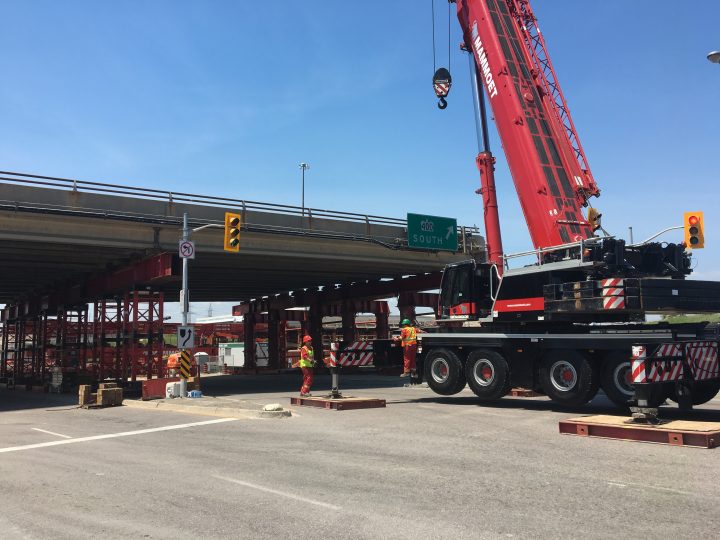Crews are in the final stages of a highway bridge replacement project as part of construction for the Finch West LRT.

The project has seen back-to-back weekends of road closures in the area of Highway 400 and Finch Avenue, but Metrolinx officials said it’s happening at a rapid pace and will be done by the end of the weekend.
“We’re replacing the bridge deck, which had about 10 years (of) life left and we’re replacing it so it has 75 years and we can run our LRT underneath it,” Metrolinx CEO Phil Verster said
The LRT, which is expected to be completed in 2023, is set to run from Finch West Station to Humber College.
Last weekend, crews replaced the southbound bridge of Highway 400, and this weekend, they are working on the northbound lanes.

Get daily National news
Verster said the construction method crews are using allows the project, which would normally take years, to be completed in a matter of days.
He said crews essentially build the new bridge alongside the highway and use a machine to move out the old bridge and implement the new one.
“We’re doing it in three days each over two weekends and it’s a fantastic and really cool achievement,” Verster said.
“We sped it up so that we can do it during the COVID period and get it done as quickly as possible with minimum disruption to the people of Ontario.”
Verster also touted the wider Finch West LRT project.
“It’s a super exciting development for this part of the City of Toronto and it’s going to unlock this part of Toronto in a big way and massively improve the connections for people, take buses and cars off the road, and move more people in this part of the city,” he said.








Comments
Want to discuss? Please read our Commenting Policy first.